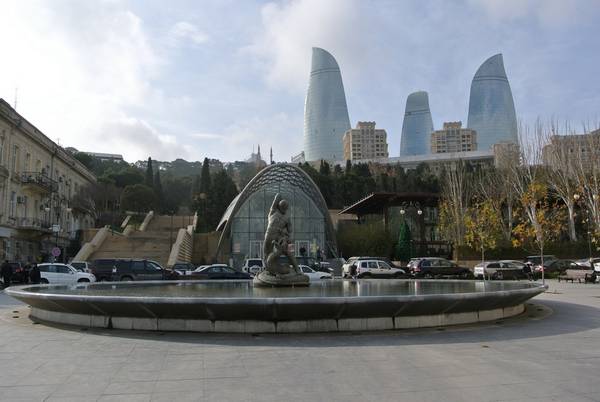Azerbaijan, post-oil&gas era future seems to lie in building
Azpromo, construction and infrastructure among expanding sector
09 January, 09:18''These are the sectors on which we are investing'', said speaking to ANSA New Europe Mr Rufat Mammadov, president of Azpromo, Azeri agency for exports and investment. The new 'black gold' for the Caucasian country seems to be represented by the construction industry. Huge projects, which are now being developed, are named 'Baku White City' and 'Khazar Islands': the white city - just the polar opposite of the 'black' one, that was the name, in Soviet times, of the area of 221 hectares, once highly polluted, on which new dwellings, offices and shops will be built. This huge project, that includes the construction of artificial islands in the Caspian Sea, recalls those made in Dubai.
Around 3000 hectares of land, 50 islands with residential areas, shopping centers, 10 hotels, 50 hospitals, schools, residences and apartments that can accommodate 1 million residents and about 200,000 tourists. There is the Azerbaijan Tower - designed to become, once completed in 2022, the tallest building in the world (1050 meters and 186 floors), that will beat even the Burj Khalifa in UAE, which is 828 metres tall and has 'only' 163 floors. Did Baku really need all this? ''Baku is an expanding megalopolis'', Mammadov replied, and ''due to the strong increase of foreigners who come here to work and invest, new housing is necessary''. Among the most important projects, the construction of the railway linking the Azeri capital city to Tbilisi (Georgian capital), up to the Turkish city of Kars, connecting to Corridor 4 Europe 2015; the new port of Alyat, ''65 km away from the capital city, with a capacity of 20 million tonnes of goods and 1 million containers per year' '; the Baku airport and the expansion of the underground lines.
There are a lot of opportunities for Italian companies, Azpromo president confirmed. ''In the last year alone, the non-oil sector grew by 10% whereas between January and October 2014 there was an increase by 6.4% ''. Azerbaijani economy, he pointed out, ''does not need cash, but know-how and expertise.
This is what Italy has got in abundance''.
Another area which is good for investment is tourism, '' we are working hard in order to upgrade our accomodation facilities''. If in 2002 foreign visitors were 435,000, in 2013, according to official figures, about 2.1 million tourists have chosen Azerbaijan as a holiday destination with a spending which approximately amounts to $ 1.6 million. Italy remains Azerbaijan's main economic partner. Main customer of the Caucasian country for several years, with a trade amounting to 7.2 billion in 2013 - and absorbing 23% of Azeri exports -, Italy is Azerbaijan's ninth supplier, with exports which totaled 516 million euros (in 2013). Finally, the issue of multilateral alliances must be taken into account.
If politically Azerbaijan is a member of the Council of Europe - amidst protests from some countries - and has come to join the non-permanent members of the UN Security Council, economically the path towards accession to the World Trade Organization (WTO) is still an uphill battle. '' We are not against the WTO - Azpromo's head said - but we negotiate our participation. Our producers are not ready to join. It takes some time''. The path indicated by the father of the Nation, Heydar Alyiev, remains the country's lighthouse. With two bulky neighbours - Russia to the north and Iran to the south - Azerbaijan still looks to the west. (ANSA).














